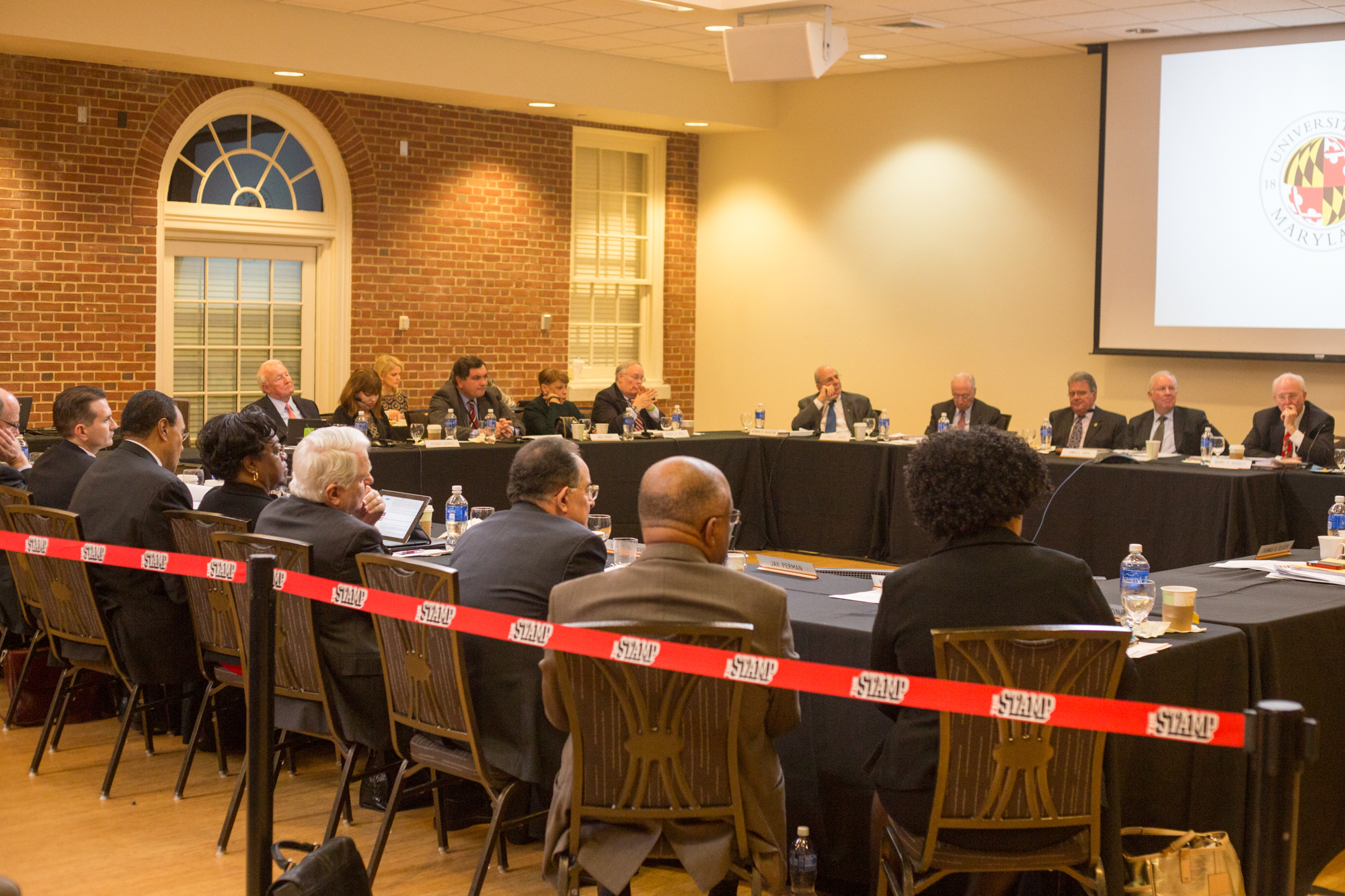The University System of Maryland Board of Regents will meet for the first time this academic year on Friday, featuring five new members who were appointed within the last year.
The board is responsible for overseeing the 12-campus system, which has an annual budget of about $5.1 billion. The new regents are Ellen Fish, Louis Pope, D’Ana Johnson, James Holzapfel and student regent Brandon Enriquez. Gov. Larry Hogan selected the new members, whom the Maryland Senate then confirmed.
James Brady, a former board member, will take over as chair of the 17-member board. He said he has been “extremely impressed” by the new members.
“What impresses me the most is each of them has a real conviction in higher education, a very healthy view of the role higher education has to play in the lives of young people,” Brady said. “And then they each bring in their own life experiences that are very helpful.”
As the only student regent on the board, Brandon Enriquez speaks on behalf of about 160,000 students who are part of the system. He said he is energized more than he is intimidated by that responsibility.
“It can be tough being the only student in the room,” said Enriquez, a senior economics and mathematics major at the University of Maryland, Baltimore County. “A lot of [other regents] are lawyers, businessmen, and they do bring various different perspectives, but as a student, I bring my own perspective as well. Every decision the Board of Regents makes will affect students. It is a big responsibility, but I can go in empowered.”
Pope has been a real estate broker for more than 40 years and is the former chairman of the Maryland Republican Party, according to the system’s website. Hogan nominated Pope to serve as a regent after Pope finished his duties as a Republican National Convention delegate in July. Regents cannot be politically active while on the board.
Holzapfel is the managing director of investments for The Holzapfel Investment Group of Wells Fargo Advisors, LLC. He graduated from the University of Maryland in 1971 as a third-generation Terp. He has experience on boards that have dealt with public works, schools, economic development and art.
Fish is an executive at Hamilton Bank, a Virginia Tech alumna, and a former leader of the Maryland Chamber of Commerce, according to the system’s website. Johnson has been practicing law for more than 40 years and is a partner at Bonner Kiernan Trebach & Crociata LLP, according to the site.
Fish and Johnson could not be reached for comment. While the new board members come from diverse backgrounds, from law to real estate to politics, many share one major concern: college affordability.
“It is very difficult for an individual to put themselves through college,” Pope said. “I could make most of the money I needed for tuition, room and board working part-time through year and full-time during the summer. You can’t do that today. I would like to make it as affordable as possible.”
Holzapfel shared a similar memory of his own college experience in College Park. He said a semester cost him about $500 and he had a scholarship for $250, but those figures today would cover textbooks rather than tuition.
“The biggest challenge for the entire system is the whole concept of trying to provide really good quality educational experiences … but to do it in an affordable way,” Holzapfel said.
As chair, Brady is responsible for outlining the issues the board will address each meeting, beginning with its first meeting this Friday at Towson University. While tuition is an important issue, Brady said, it’s not first on his long-term list.
“Number one, our primary mission, is the success of the students,” Brady said. “Everything we do has to have a relationship with that. … The success of our students is absolutely key.”



